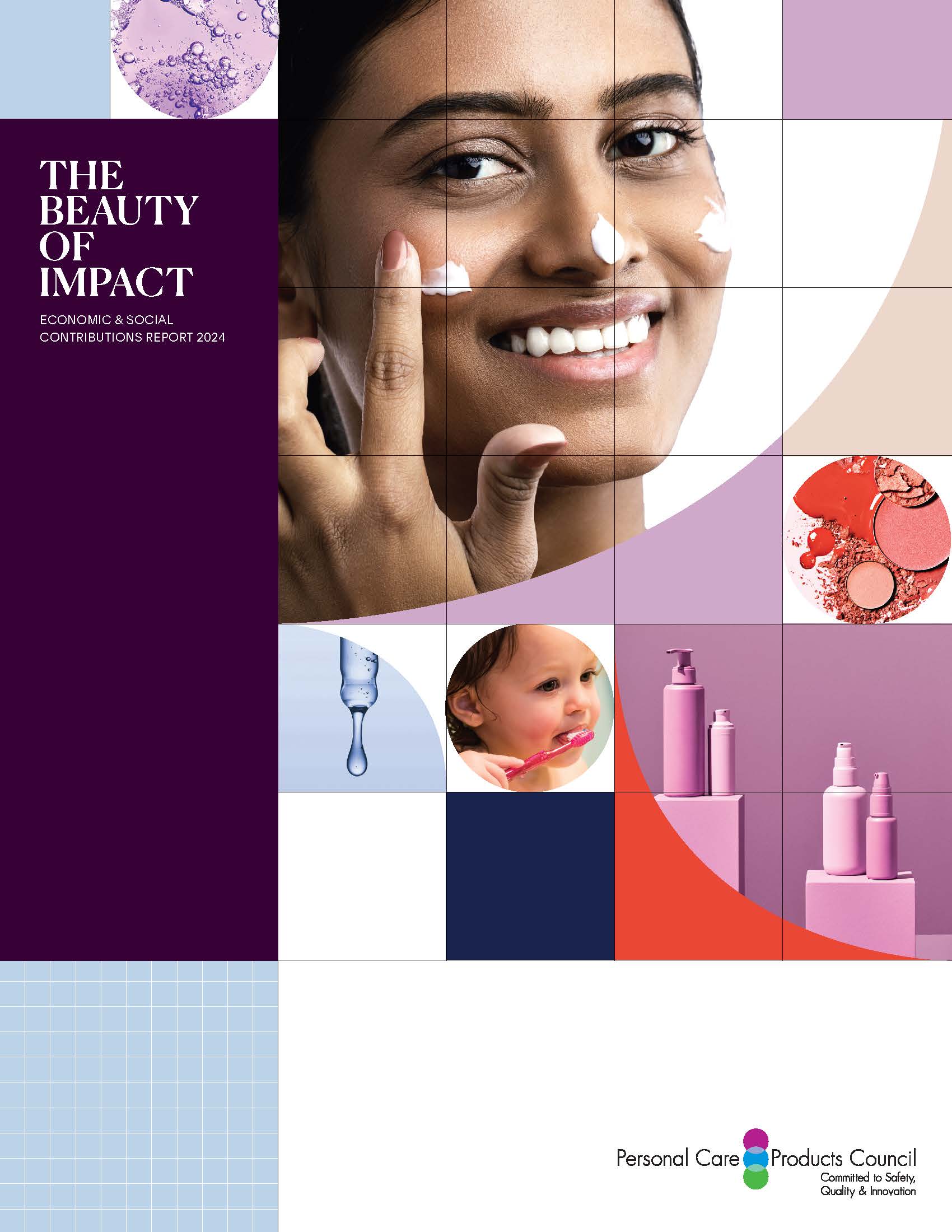Cosmetics and Personal Care Products Industry Drives the U.S. Economy and Promotes Social Well-being, According to New Report
FOR IMMEDIATE RELEASE
CONTACTS:
Stefanie Harrington, (202) 615-6558, harringtons@personalcarecouncil.org
Jennifer Daniel, (540) 904-8978, danielj@personalcarecouncil.org
Cosmetics and Personal Care Products Industry Drives the U.S. Economy and Promotes Social Well-being, According to New Report
WASHINGTON—The Personal Care Products Council (PCPC) unveiled its latest report, “The Beauty of Impact,” which shows the profound economic and social contributions of the U.S. cosmetics and personal care products industry. The report highlights the industry’s role in job creation, economic growth, scientific advancement, sustainability and community support throughout 2022, the most recent data available.
“On every measure, our industry is thriving and contributing to the U.S. economy while serving as an agent for positive change for people and the planet,” said PCPC President and CEO Tom Myers. “Our member companies are committed to creating employment opportunities, driving innovation through scientific research, and supporting consumers’ health and well-being.”
Economic Contributions:
- 4.6 million jobs: The industry supports direct and indirect employment across various sectors, highlighting its role as a significant job creator.
- $203.3 billion in labor income: This substantial figure reflects the industry’s commitment to providing well-paying jobs.
- $308.7 billion added to the gross domestic product (GDP): Cleary indicates the industry’s significant impact on the national economy.
- $82.3 billion in federal, state and local taxes: These contributions support public services and infrastructure.
Despite the challenges posed by the pandemic, the industry demonstrated remarkable resilience and growth:
- 15% increase in GDP contributions since 2020.
- 17% rise in total employment, underscoring the industry’s expanding workforce.
- 19% boost in labor income, reflecting increased wages and salaries.
- 27% increase in tax payments, contributing more to government revenues.
Industry Highlights:
- Small Business Support: 71% of employees work for businesses with fewer than 50 employees, showcasing the industry’s role in fostering entrepreneurship.
- Diversity and Inclusion: Employment rates for women (nearly 80%) and people of color (33%) significantly exceed national averages, demonstrating the industry’s commitment to equity.
- STEM Investment: Over 5,700 professionals are employed in science, technology, engineering and mathematics (STEM), driving innovation and ensuring product safety.
- Sustainability Efforts: Industry leaders reduced Scope 1 greenhouse gas emissions by 8.7%, highlighting their commitment to environmental responsibility.
- Charitable Contributions: The industry donated $170 million to various causes, translating to $1,500 for every $1 million in revenue, significantly above the national average.
PCPC has worked with PricewaterhouseCoopers (PwC) since 2016 to measure the economic and social impact of the personal care products industry using the most recent government data. An executive summary and the full report, including detailed data for every state and the nation’s largest Metropolitan areas (New York and Los Angeles), are available on PCPC’s website.
# # #
Founded in 1894, the Personal Care Products Council (PCPC) is the voice and advocate for 600 member companies representing the global cosmetics and personal care products industry. PCPC’s members represent approximately 90% of the U.S. beauty industry and are some of the most beloved and trusted brands in beauty and personal care today. As the manufacturers, distributors and suppliers of a diverse range of products millions of consumers rely on every day – from sunscreens, toothpaste and shampoo to moisturizer, makeup and fragrance – PCPC’s member companies are global leaders committed to product safety, quality and innovation.

